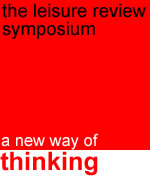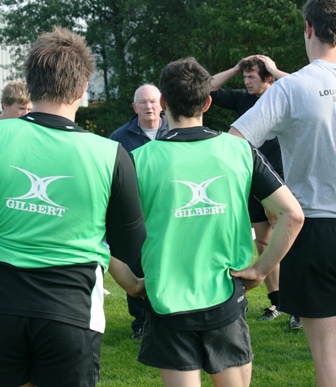
Johnno must go or English rugby will suffer
With the Lilywhites two games from a Grand Slam Joe Coach argues that their manager Martin Johnson should not be in the job.
As media types make a huge fuss about England’s flying wing man Chris Ashton’s extravagant try celebrations the claim is made that Martin Johnson doesn’t like the show-boating. When asked to voice his displeasure Johnson demurs, refusing to play the game. He has always been distrustful of journalists putting words in his mouth and then pillorying him when circumstances conspire to make him sound arrogant, ignorant or ill-informed and his years at the helm of England’s first fifteen have made him no more forthcoming. And he is at the helm of the side that, having beaten France, is now odds-on favourite to win the championship, and probably the Triple Crown and the Grand Slam into the bargain.
When Johnson was appointed there was much talk of a managerial role. He is not a coach and he was not employed as a coach. Indeed one of the most common criticisms aimed at him in previous seasons, when his team have been less than spectacular, is that he employs too many coaches, and that too many of them are old pals from his Leicester days. However, whether Mike Ford is nominally in charge of defence or Graham Rowntree coaches the scrummage, it is always Johnno’s opinion that counts. It is the beetle-browed leviathan who calls the shots and, whether he wears a jacket with ‘coach’ screen-printed on it or not, the public perception and the media reportage accord: Martin Johnson is the coach of England.
To most people that would make little difference. Does it matter what the head man calls himself just so long as his team win? Not to the man on the Richmond omnibus trying to get to Twickenham when the tube is out of action perhaps but to anyone who wants to see grassroots rugby develop in England and beyond it should. Allowing a man with no coaching qualification and no background in coaching to appear to be coaching the national side cuts the legs out from under every qualified coach, coach educator and anyone trying to raise the standard of rugby in this country. Martin Johnson is a menace.
A version of coaching came to rugby in England in 1969 but it was not until Dick Greenwood pioneered squad training rather than one-off trials in the early eighties that the coach really became a figure of authority. Individuals such as Geoff Cooke, Jack Rowell and Clive Woodward have raised the profile of the role to such an extent that the last of them parlayed his team’s world cup success into a knighthood, a spell in football and an obscure job with the British Olympic Committee. It was significant that when Woodward left the not-so-loving embrace of the Rugby Football Union the national squad lost its way. His number two (and probably the rugby brains behind the world cup win), Andy Robinson, was given the job but lost more games than he won and his successor, the cerebral Brian Ashton, made the fundamental mistake of expecting players to think for themselves. He lasted only 18 months. Enter Martin Johnson, proven leader and man of respect. Any port in a storm some might say but the appointment was popular and latterly successful. However, while, for the English, it’s a joy to see unfettered winning rugby on Billy Williams’ cabbage patch, the implication is that should England sneak another world cup win (and that is no longer beyond belief) the sport in England would actually suffer.
In 2003 when Jonny Wilkinson drop kicked the nation, or the rugby-playing part of it anyway, into ecstasy he presaged a flood of potential players heading towards local rugby clubs. When chief executive Francis Baron announced his intention to retire in November 2009 one of his claims to fame was that since that win in Sydney adult participation overall was “up 12% and mini and junior rugby had increased by 49% in the same period”, although how much credit he felt went to Wilkinson and how much to himself remains unclear. Whoever is responsible for the upsurge in recruitment, it is local rugby clubs, their volunteers and particularly their coaches who were instrumental in delivering these figures.
Children come to rugby to please their parents, copy their heroes and to have fun. They want their coaches to behave like nice people who put their charges’ needs at the centre of the activity, not run drills, shout and make winning the be-all and end-all of the coaching process. A background in the game is not required to coach it well, indeed there is an argument that it impedes successful coaching as it shifts the emphasis from the player to the coach. Promoting Johnson to England’s top job gives the message that personal experience of the battlefield is required, indeed that it is almost all that is required, and that the paraphernalia of qualifications are for lesser men. Nothing could be further from the truth. The SportsCoach UK workshop Safeguarding and Protecting Children makes it clear that poor coaching practice is a real threat to children’s wellbeing when taking part in sport and the resource which supports it says “good practice involves… a professional approach to coaching where there is evidence of honesty, integrity and competence”.
In the agency’s code of conduct for coaches the need for qualifications and continuous development is explicit. Under the heading ‘professional standards’ it says: “coaches must attain a high level of competence by attaining qualifications and through a commitment to ongoing training that ensures safe and correct practice”. Coaches should not walk from the third fifteen front row on a Saturday via a night in the bar retelling war stories to the under-16s training pitch on a Sunday to show young men unsafe lineout techniques while modelling inappropriate attitudes to gender, race and differing sexuality while swearing like a drunken matelot before encouraging their under-age changes to drink alcohol to excess in the company of men who should know better. But that is exactly what will happen with the justification that “Old Bob knows a thing or two” coupled with “You don’t need an expensive qualification, after all Johnno hasn’t got one.” The fact that men like Old Bob will drive people away from the sport will be overlooked and Francis Baron’s legacy will be frittered away by clubmen chuntering about Twickenham demanding too much money for too many things and reassuring each other that “as long as the lads are enjoying it” everything will be alright.
The RFU’s new broom, John Steele, appears to have a vision for his sport. If it is to be one of increasing participation figures with as wide a demographic as possible getting and staying involved, he needs to change the perception that an unqualified ex-second row with cauliflower ears and an unreconstructed attitude to the coaching process is coaching his first fifteen. If he fails in this duty he will see far less intelligent men than Mr Johnson calling themselves a coach and driving far less self-posessed young men than those inhabiting the England elite squads away from the game, bullied, bored rigid and being injured through the stupidity of some big bloke with a broken nose.
Joe Coach is the nom de plume of a highly experienced and impressively qualified sports coach.
The Leisure Review, March 2011
© Copyright of all material on this site is retained by The Leisure Review or the individual contributors where stated. Contact The Leisure Review for details.
Download a pdf version of this article for printing

Brian Ashton: too good a coach for the England job?